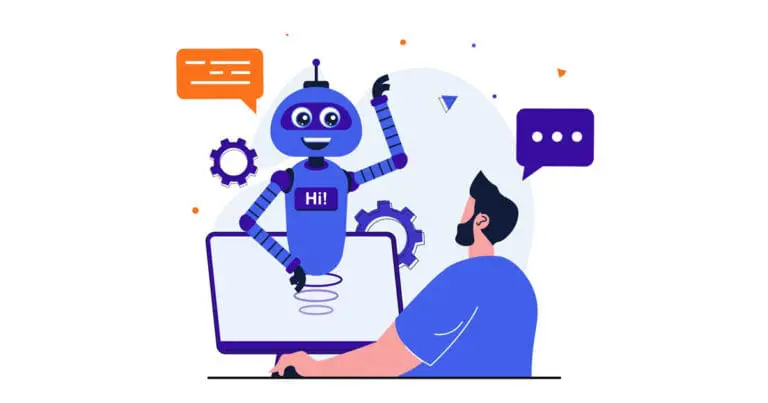The Ripple Effects of Meta’s AI Hiring Blitz on the Tech Job Market

Meta, the tech giant behind Facebook, Instagram, and WhatsApp, has embarked on an aggressive hiring campaign to secure top Artificial Intelligence (AI) talent, underscoring the company’s pivot towards AI-centric development.
With direct outreach from CEO Mark Zuckerberg to desired candidates, this unconventional strategy emphasizes the priority of these hires and adds a personal touch to the recruitment process.
To further streamline its talent acquisition, Meta has made bold offers to candidates without subjecting them to the traditional, rigorous interview processes typically expected in the industry.
This strategy speeds up the hiring timeline and positions Meta as a highly attractive employer for AI professionals looking for impactful and immediate opportunities.
Jump to:
- Meta AI hiring strategies
- Impact of Meta hiring strategy on the job market
- Competition and collaboration in AI development
- Future of the tech job market
Meta AI hiring strategies
Meta AI hiring strategies include direct outreach to AI talent, interview bypassing, and poaching from AI tech giants.
Direct outreach to AI talent
Meta’s unconventional recruiting strategy, including personal outreach from CEO Mark Zuckerberg, signifies an evolving landscape in the tech industry’s approach to talent acquisition.
By bypassing traditional hiring norms, Meta expedites the recruitment process and imbues prospective candidates with a sense of importance and exclusivity.
This method could redefine competitive hiring, forcing other tech giants to adopt more personalized recruitment tactics to attract top AI talent.
Interview bypassing for top AI talent
Bypassing the standard interview protocols, Meta reinforces its position as an industry innovator, not just in technology, but in hiring practices as well.
This approach allows for the swift onboarding of high-caliber AI professionals keen on making immediate contributions without the deterrent of lengthy hiring procedures.
Consequently, this has set a new precedent, challenging traditional tech firms to reconsider their talent acquisition strategies to remain competitive.
Poaching AI talentfrom tech giants
Meta’s deliberate targeting of top AI talent from rivals such as Google’s DeepMind and other tech luminaries underscores a strategic maneuver to control the burgeoning field of AI.
By securing individuals at the forefront of AI research and development, Meta not only bolsters its own capabilities but also strategically weakens its competitors’ innovation potential.
This aggressive poaching has sent ripples through the tech industry, pressuring competitors to safeguard their talent and possibly reassess compensation and benefits to retain their best minds.
The result is a potential industry-wide escalation in the stakes of talent acquisition, setting the stage for an intense battle for the brightest in AI amidst an already competitive job market.
Impact of Meta AI hiring strategy on the job market
The impact of Meta’s AI hiring strategy on the job market could include increased use of AI and tech staffing services, a shift in salary norms, doubling down on employee retention, and meeting employee expectations.
Increased use of AI and tech staffing services
The heightened competition for AI talent, exemplified by Meta’s aggressive hiring strategies, likely will catalyze an increased reliance on specialized staffing agencies like Mondo Staffing.
These agencies, with their expansive networks and access to a wide pool of top-tier AI candidates, offer a strategic advantage to companies vying to fill their ranks with the best minds.
This collaboration could streamline the recruitment process, ensuring that organizations remain competitive in the fast-evolving tech landscape.
A shift in salary norms
Meta’s readiness to offer significantly higher salaries and direct job opportunities has undoubtedly catalyzed a shift in salary expectations within the tech and AI sectors.
This move not only sets a new benchmark for compensating top AI talent but also compels other companies in the industry to reassess and possibly elevate their salary structures to attract and retain skilled professionals.
Such a trend contributes to an upward trajectory in wages across the board, potentially transforming the overall compensation landscape in the technology sector.
Doubling down on employee retention
The escalation of compensation packages and the personalized recruitment approaches by Meta could necessitate a reevaluation of employee retention strategies across the tech industry.
Companies might be compelled to innovate not just in their technological offerings, but also in creating more compelling work environments and career development opportunities to prevent talent turnover.
This dynamic could lead to a broader rethinking of compensation expectations and job satisfaction measures industry-wide, ensuring that talent retention becomes as much a priority as talent acquisition.
Meeting employee expectations
The aggressive hiring strategies adopted by Meta have inevitably raised employee expectations across the tech sector.
Professionals now seek competitive compensation and value swift, personalized recruitment processes and the promise of immediate impact in their new roles.
This shift challenges companies to rethink not just how they hire but also how they engage with current and prospective employees to meet these evolving expectations.
Competition and collaboration in AI development
Competition and collaboration in AI development could mean competition among tech giants and potential collaboration driven by limited AI resources.
AI development competition among tech giants
Meta’s strategic focus on recruiting top AI talent reflects an underlying industry trend where the race for AI dominance has become central to major tech companies’ technological and strategic planning.
This competitive recruitment approach signals a broader shift towards AI as not just an operational tool, but as a foundational pillar for future developments, innovation, and market leadership.
It underscores a larger narrative where tech giants increasingly recognize that securing the best minds in AI is crucial for gaining a competitive edge in an era where AI’s potential seems boundless.
Potential collaboration driven by limited AI resources
The fierce competition for AI talent may paradoxically lead to increased collaboration among tech giants, as they recognize the benefits of pooling resources to push the boundaries of AI research and development.
This coalescence could foster unprecedented advancements in AI technologies, catalyzing breakthroughs that would be challenging to achieve in isolation.
However, as companies grapple with the scarcity of top-tier AI experts, the battle for intellectual capital could intensify, potentially leading to further competitive tactics and innovation secrecy.
Future of the tech job market
The future of the tech job market could see changes in job mobility, skill set demands, and recruitment practices.
Job mobility in the tech job market
The escalation in AI hiring wars, led by companies like Meta, is paving the way for greater job mobility within the tech sector.
Professionals find unprecedented opportunities to shift roles and companies, fostering a dynamic and fluid job market environment.
Skill set demands in the tech job market
The increasing demand for AI expertise is shifting the landscape of required skill sets, with a growing emphasis on interdisciplinary knowledge that combines technology, ethics, and business strategy.
This evolution signifies a profound change in the tech industry’s talent development and acquisition approach.
Recruitment practices within the tech job market
As companies like Meta redefine the landscape of AI talent acquisition, innovative recruitment practices such as virtual job fairs and AI-driven candidate matching are becoming increasingly prominent.
These methods streamline the hiring process and align with the industry’s shift towards more technologically sophisticated and efficient human resource strategies.
Meta AI jobs and recruitment
Meta’s aggressive AI hiring strategies have set new benchmarks for salary norms, intensifying the war for talent in a fiercely competitive job market.
By offering elevated compensation packages and prioritizing the acquisition of top AI professionals, Meta impacts the salary expectations across the tech sector and pressures competitors to innovate in their recruitment and retention strategies.
This dynamic could lead to a seismic shift in how companies approach talent management, emphasizing the need for more engaging and fulfilling work environments alongside competitive pay.
In response to these industry shifts, adapting recruitment and retention strategies becomes crucial for companies aiming to maintain a competitive edge and attract the best talent in an increasingly AI-driven landscape.
Looking to hire top-tier AI & Tech Talent? We can help.
Every year, Mondo helps to fill over 2,000 open positions nationwide.
More Reading…
- AI You Didn’t Realize Your Organization Is Already Using
- The Latest Innovations in Health and Wellness Technology
- Green Tech: 5 Sustainability Innovations in the Tech Sector
- Top 6 Job Search Tips During Layoffs
- How to Write an ATS-Friendly Resume in 2024
- Unionized College Athletes: Dartmouth Sets a Precedent for Change
- Quantifying a Project Manager’s Success to Advocate for Hiring
- Breaking the Code: How Women are Shaping the Future of Cybersecurity
- The Rise of AI Majors: Transforming the US Job Market
- Tips to Leverage Your Onboarding Process for Employee Retention
- Pay Transparency: What States Have It & Why It’s Important
- 10 Tech Jobs That Saw the Highest Salary Growth This Year
- Highest Paid Data Science Roles & Top Salaries



